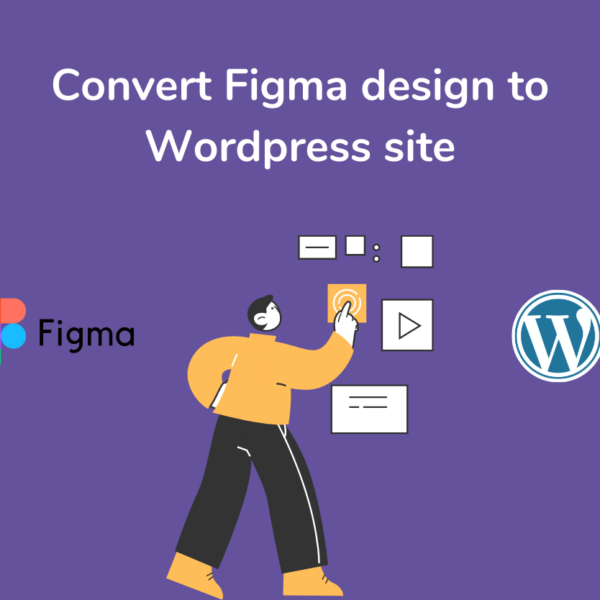Drupal vs WordPress is the insight defining why is it the most popular content management systems (CMS) on the market today.
Both have their own features and advantages, and choosing the right one for your website can be a daunting task.
In this blog, we will take a look at the critical differences between Drupal and WordPress and help you decide which one is the best fit for your needs.
Table of Contents
Drupal VS WordPress
| Drupal | WordPress |
|---|---|
| Drupal is an open-source CMS that was first released in 2001. | WordPress is an open-source CMS that was first released in 2003. |
| It is known for its flexibility and scalability, making it an excellent option for large, complex websites. | It is known for its ease of use and user-friendly interface, making it an excellent option for beginners and small businesses. |
| Drupal is also a popular choice for government and enterprise websites, as well as for educational institutions and non-profit organisations. | WordPress is also a popular choice for bloggers and personal websites. |
| One of the key advantages of Drupal is its flexibility. | One of the key advantages of WordPress is its ease of use. |
| Drupal allows you to create custom content types, which can be used to create a wide variety of different types of pages and content. | WordPress has a user-friendly interface that is easy to navigate, and it is also easy to install and set up. |
| Creating anything from basic blog posts to complex landing pages. with custom forms and interactive elements. | WordPress allows you to create custom pages and posts, and it also has a wide range of plugins and add-ons available. |
| Drupal also has a wide range of modules and add-ons available, which can be used to add extra functionality to your website. | WordPress has many themes and templates, which can be used quickly and easily to create a professional-looking website. |
| Another advantage of Drupal is its scalability. | Another advantage of WordPress is its flexibility. |
| Drupal is built to handle large amounts of content and traffic, making it an excellent option for Websites with many visitors or content. | You can add extra functionality to your website, such as contact forms, e-commerce functionality, and more. |
| Drupal also has a built-in caching system, which can help speed up your website and reduce server load. | In the case of WordPress, there is a built-in SEO system. |
| One of the main drawbacks is that it can be difficult to use for beginners. | One of the main drawbacks is that it is not as scalable as Drupal. |
| Drupal has a steeper learning curve than WordPress, and it can take some time to learn all the different features and options available. | WordPress is better suited for small to medium-sized websites, and it may not be able to handle large amounts of traffic or content. |
Additional Features:
Drupal and WordPress are both highly customisable content management systems that offer a wide range of features beyond the basic functionality of creating and managing content. Here are some additional features of Drupal:
| Additional Features | Drupal | WordPress |
|---|---|---|
| Content Types | Supports complex content types and customizable fields. Allows creation of custom content types tailored to specific needs. | Supports basic content types and custom post types. Limited flexibility compared to Drupal. |
| Scalability | Highly scalable and suitable for large and complex websites with high traffic and extensive content. Can handle enterprise-level projects. | Well-suited for small to medium-sized websites. May require additional plugins or optimization for scalability in larger projects. |
| User Roles and Permissions | Offers granular user access control with fine-grained permissions and the ability to create custom user roles. | Provides basic user role management and permissions. Additional functionality can be added through plugins. |
| Multilingual Support | Provides built-in multilingual capabilities, allowing the creation of multilingual websites with translations and language-specific content. | Offers basic multilingual support through plugins. Additional functionality can be achieved with dedicated translation plugins. |
| Customization | Offers extensive customization options with a robust theming system, flexible layouts, and powerful APIs for developers. Suitable for highly customised websites and complex workflows. | Provides a user-friendly interface for customization with a wide range of themes and plugins. Offers flexibility for customization but not as extensive as Drupal. |
| E-commerce | Supports e-commerce functionality through various modules and integrations. Suitable for building complex online stores with advanced features. | Offers e-commerce functionality through plugins like WooCommerce. Well-suited for small to medium-sized online stores. |
| Community and Support | Has an active community of developers and contributors providing support, documentation, and frequent updates. | Has a large and active user community. Offers extensive documentation, support forums, and regular updates. |
| Security | Known for its strong security features, regular security updates, and proactive community response to vulnerabilities. | Implements security best practices but may require additional security plugins and vigilant updates to ensure optimal security. |
Which One is the Best Fit for Your Business?
When choosing between Drupal and WordPress for your business website, it’s essential to consider your specific needs and goals. Here are some factors to help you determine which CMS is the best fit for your business:
1. Complexity and Customization:
- If your business requires advanced customization and complex content structures, Drupal might be the better choice. Drupal offers extensive flexibility, allowing you to create custom content types, define complex workflows, and tailor your website to specific requirements.
- WordPress is ideal for simpler websites and businesses that prioritise ease of use. While it provides customization options through themes and plugins, it may not offer the same level of flexibility as Drupal for highly tailored solutions.
2. Scalability and Performance:
- For large-scale and enterprise-level websites with high traffic and complex functionalities, Drupal excels in scalability and performance. It can handle substantial content volumes and provide robust performance even under heavy loads.
- WordPress is well-suited for small to medium-sized websites and businesses with relatively lower traffic. While it can handle moderate scalability, larger projects may require additional optimization and caching techniques.
3. E-commerce and Specific Functionalities:
- If your business heavily relies on e-commerce functionalities, such as online stores and product catalogues, both Drupal and WordPress offer solutions. Drupal’s built-in e-commerce capabilities and modules make it suitable for complex online stores. WordPress, on the other hand, has popular e-commerce plugins like WooCommerce that cater to smaller to medium-sized businesses.
4. Multilingual Support:
- If your business operates in multiple languages, Drupal has native multilingual capabilities that allow you to create translated content and manage language-specific preferences efficiently.
- WordPress offers multilingual support through plugins like WPML, making it suitable for businesses with simpler multilingual requirements.
5. Support and Community:
- Both Drupal and WordPress have active communities and extensive support resources. However, WordPress has a larger user base and a vast library of plugins and themes, making it easier to find community support and professional services.
- Drupal’s community is known for its technical expertise and offers robust support options, but it may have a smaller pool of resources compared to WordPress.
Conclusion:
In conclusion, both Drupal and WordPress are great CMS options, but each has its own features and advantages.
If you are looking for a flexible and scalable CMS for a large, complex website, then Drupal is the better choice.
However, if you are looking for a user-friendly and easy-to-use CMS for a small to the medium-sized website, then WordPress may be the better fit.
Ultimately, the decision will come down to your specific needs and requirements, so be sure to weigh the pros and cons of each before making your final decision.
FAQs:
1. Which CMS is more beginner-friendly, Drupal or WordPress?
WordPress is generally considered more beginner-friendly due to its user-friendly interface, intuitive content management system, and extensive documentation. Drupal, while powerful, may have a steeper learning curve and is better suited for more technically inclined users or those with complex requirements.
2. Can Drupal or WordPress handle large-scale websites with high traffic?
Both Drupal and WordPress are capable of handling large-scale websites. However, Drupal’s robust architecture and scalability make it a preferred choice for enterprise-level websites with high traffic, complex content structures, and advanced customization needs.
3. Can I migrate my existing website from Drupal to WordPress or vice versa?
Yes, it is possible to migrate websites between Drupal and WordPress. However, the process can be complex and time-consuming due to differences in architecture, database structure, and themes. It’s recommended to consult with experienced developers or utilise migration tools for a smoother transition.
4. Which CMS offers better e-commerce functionality?
Both Drupal and WordPress have e-commerce capabilities. Drupal offers a range of modules like Drupal Commerce for robust e-commerce solutions, making it suitable for complex online stores. WordPress, on the other hand, has popular e-commerce plugins like WooCommerce, which are well-suited for smaller to medium-sized businesses.
5. Can I integrate third-party applications and services with Drupal or WordPress?
Yes, both Drupal and WordPress support integration with third-party applications and services. They provide APIs and extensions that allow seamless integration with popular tools, such as CRMs, marketing automation platforms, payment gateways, and more.
6. Which CMS has a larger community and support resources?
WordPress has a larger user base and a vast community, which means there are more resources, forums, documentation, and professional services available. Drupal also has an active community, but it may have a smaller pool of resources compared to WordPress.
7. How frequently are Drupal and WordPress updated with new features and security patches?
Both Drupal and WordPress release regular updates to enhance functionality and address security vulnerabilities. Drupal has a defined release cycle, typically with major updates every few years. WordPress follows a similar pattern, with frequent updates to address security issues and introduce new features.


Leave a Comment